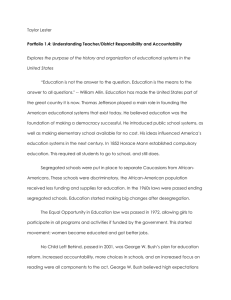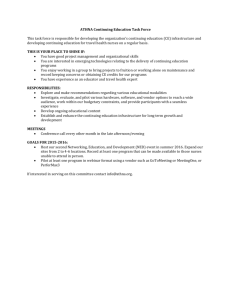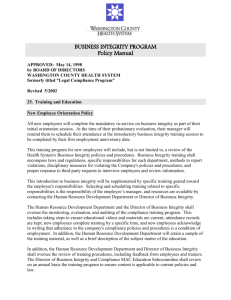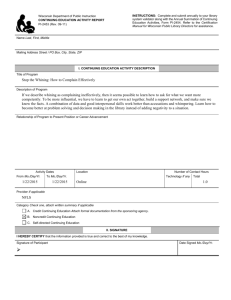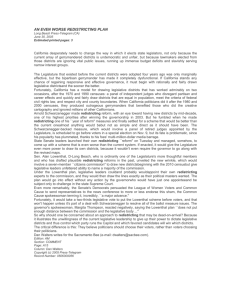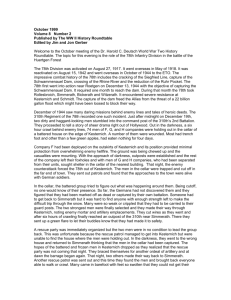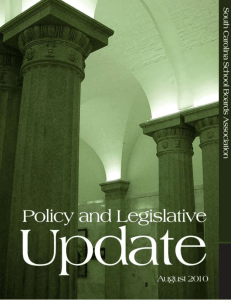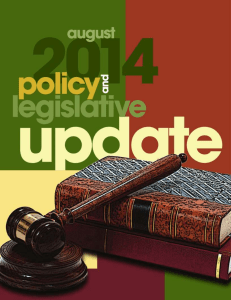school funding - Austin Independent School District
advertisement
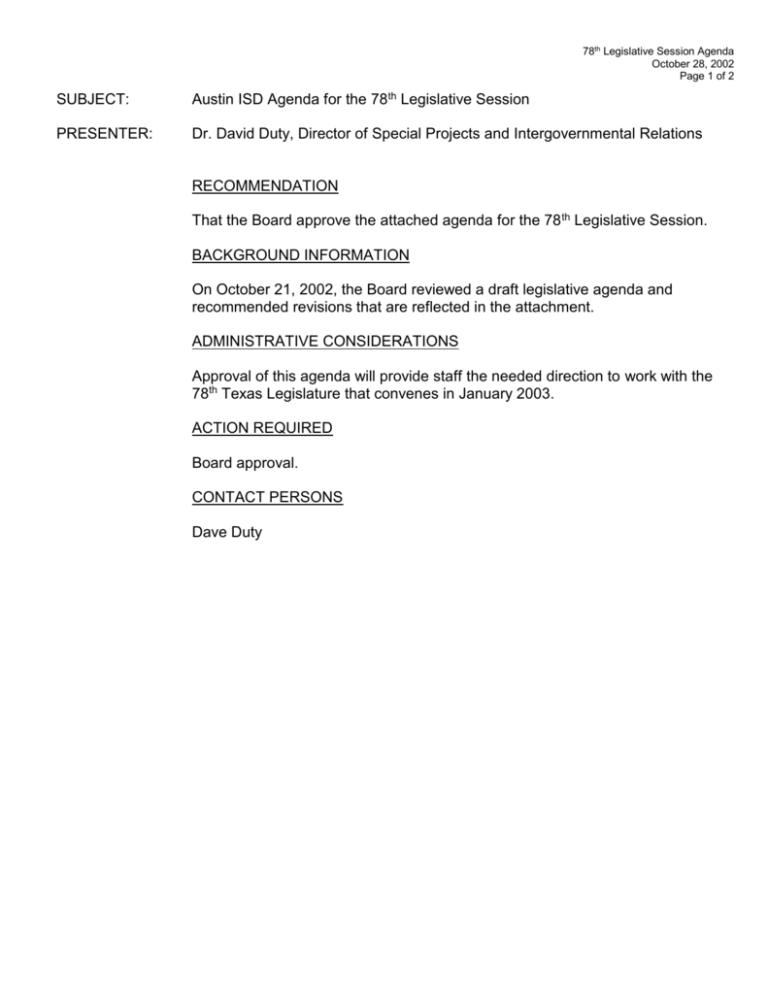
78th Legislative Session Agenda October 28, 2002 Page 1 of 2 SUBJECT: Austin ISD Agenda for the 78th Legislative Session PRESENTER: Dr. David Duty, Director of Special Projects and Intergovernmental Relations RECOMMENDATION That the Board approve the attached agenda for the 78 th Legislative Session. BACKGROUND INFORMATION On October 21, 2002, the Board reviewed a draft legislative agenda and recommended revisions that are reflected in the attachment. ADMINISTRATIVE CONSIDERATIONS Approval of this agenda will provide staff the needed direction to work with the 78th Texas Legislature that convenes in January 2003. ACTION REQUIRED Board approval. CONTACT PERSONS Dave Duty 78th Legislative Session Agenda October 28, 2002 Page 2 of 2 Austin Independent School District 78th Legislative Session (October 28, 2002) SCHOOL FUNDING Establishing a long-term solution to increasing the state/local funding capacity for public education that provides districts with sufficient flexibility to address the diverse needs of each individual district – while maintaining equity in school funding. Increasing the equalized wealth level above the current $305,000/WADA while maintaining current equity standards. Recognizing AISD’s uncontrollable costs arising from participation in the Social Security retirement program. Adopting state policies that provide funding for students who receive instruction via electronic means such as distance learning. Enhancing revenue sources to better fund public education, i.e., in the areas of reform to property taxes, closing sales tax exemptions, equal and uniform business taxes, and a state income tax. Enacting a Foundation School Finance Program that meets the statutory directives of providing necessary funds for an equitable quality program and all mandates of law and rule, including the constitutional requirement for the general diffusion of knowledge. Adjusting the state support system using a cost of education index (COEI) to recognize the variation among districts in the cost of educating students across Texas. Funding to cover the cost of the required external dropout audits. Modifying textbook financing system to recognize the realities of the urban education environment. STUDENT ACHIEVEMENT Continuing and expanding the Ninth-Grade Success Initiative programs. Refining the accountability system to balance the campus and district ratings with the increased areas of assessment. Continuing development of a strong accountability system with stable, clearly articulated standards. STAFF AND BENEFITS Developing a system of personnel training, standards, and compensation, and benefits which recognizes the needs of urban education. Continuing the state health insurance program – with the state meeting increases in insurance over the next biennium. Establishing a TRS annual multiplier beyond the current 2.3 for employees as an incentive to not retire under the “rule of 80.” Passing legislation to equitably resolve the disparity in the state’s minimum contribution to the TRS for school district employees who are no longer on the state’s minimum salary schedule. Funding the transportation costs of magnet programs. Recognizing the need for new revenue to address higher academic standards, dropout prevention programs, and the increased need for remedial programs. Establishing a weight to address the extra cost associated with the K-4 22:1 cap. Establishing a weight to address the cost associated with meeting the recommended high school program. FACILITIES GOVERNANCE Increasing the per student technology allotment. Continuing to allow all districts to apply for and receive focused state funding initiatives such as the ninth grade initiative and expanded early childhood programs. Continuing the Telecommunications Infrastructure Fund. Funding for statewide optional full-day prekindergarten program. Increasing the Tier I transportation funding. Increasing the state funding (in such areas as compensatory education) to allow public schools to more effectively meet the educational needs of an increasingly diverse student population. Maintaining the funding for the opening of new facilities and for the renovation of existing facilities. Prohibiting public school vouchers. Providing parents and students choices within a free and appropriate public education system that applies the same standards of accountability to all types of schools and programs. Maintaining the current law regarding deannexation of school districts. Continuing the current rollback provisions. MISCELLANEOUS Harmonizing, as needed, state law and rules in order for the state to comply with the provisions of the No Child Left Behind Act of 2001. Support school choice within the public school system. Expanding the Premium Tax Exemption for group health, accident and life policies to include school districts.
